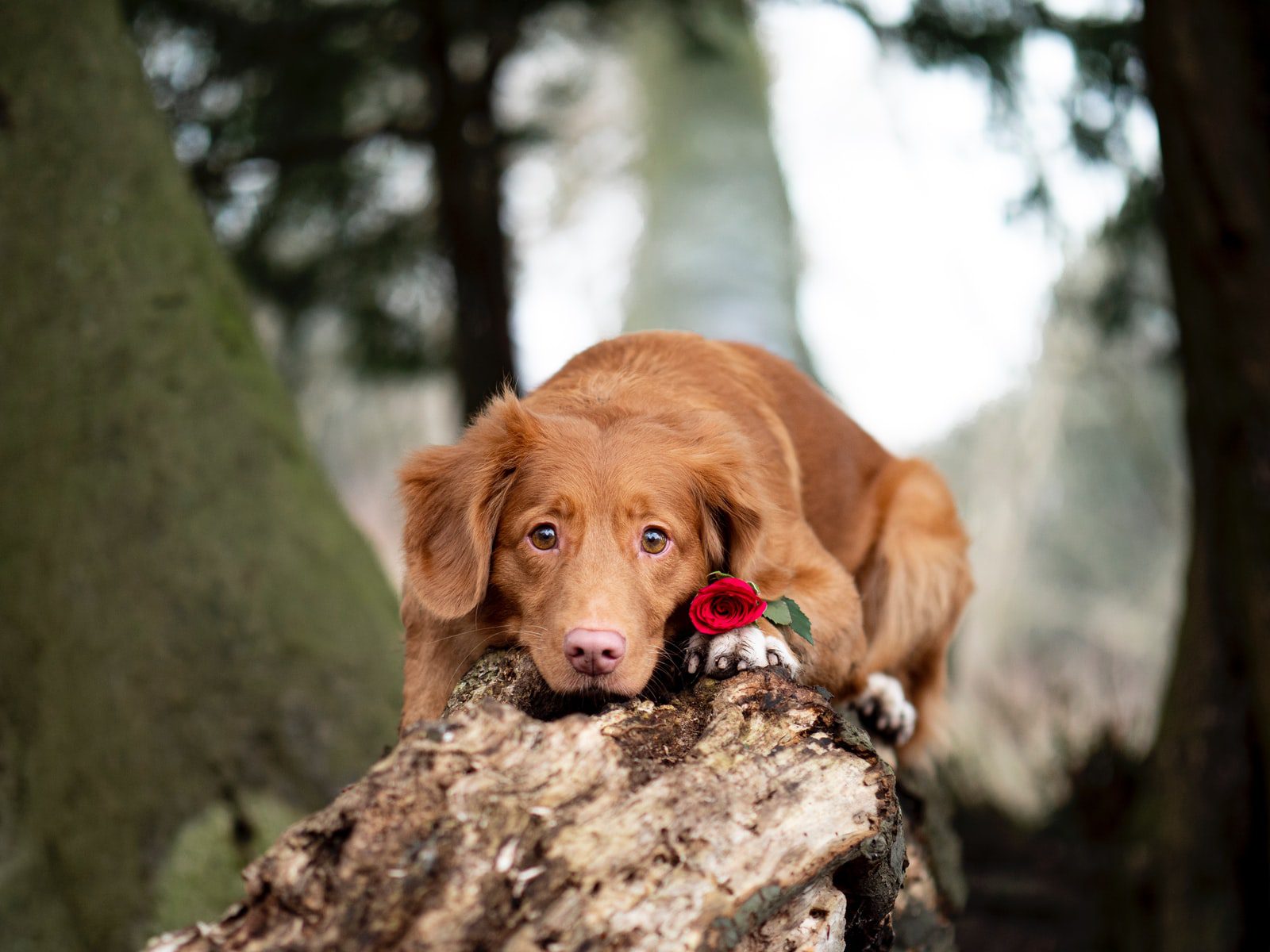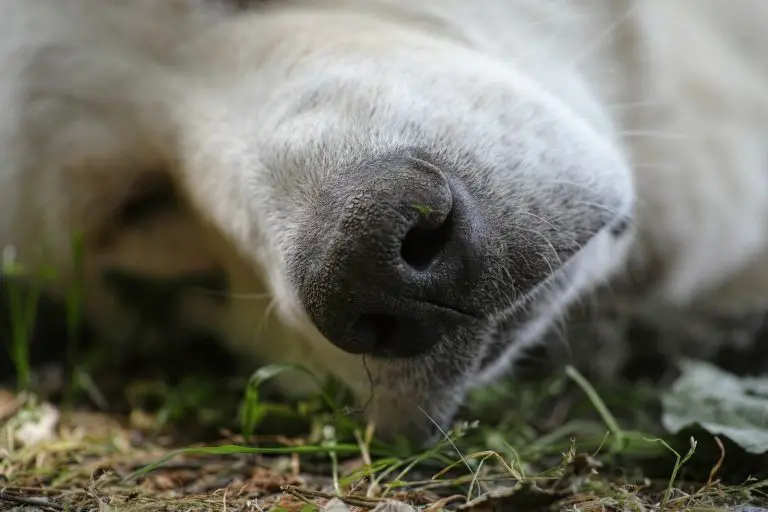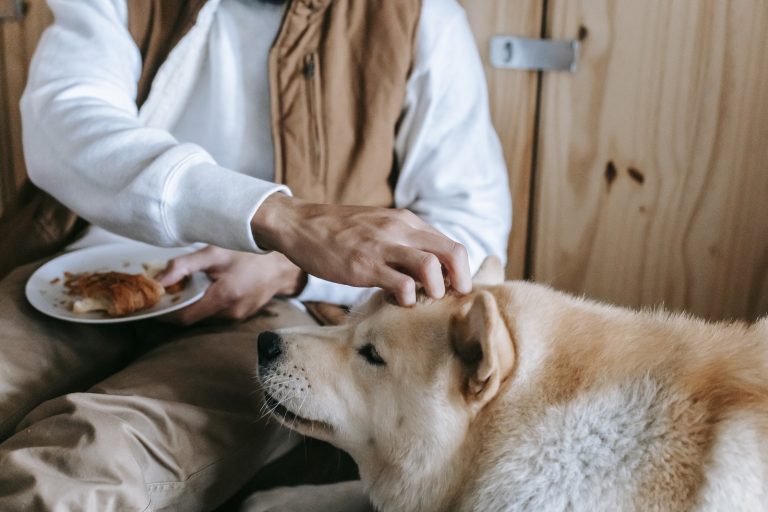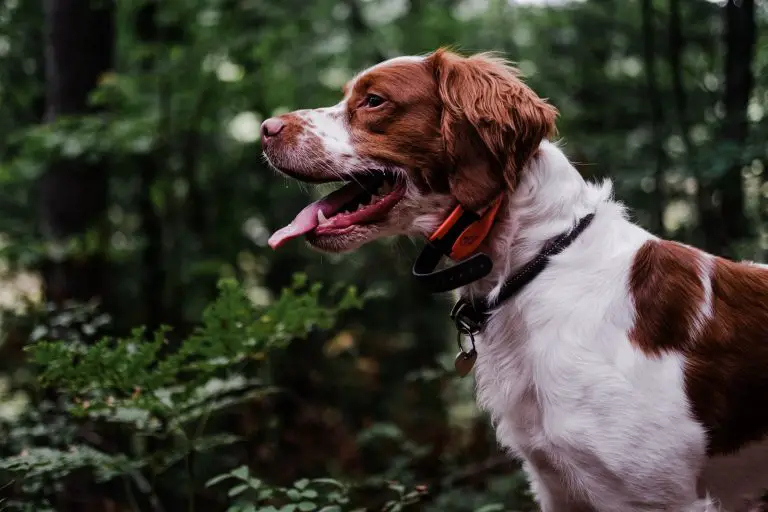Romantic music swells softly as you light the candles, and rose petals cover every inch of your home. You’ve picked out the perfect thoughtful gift for your sweetheart, and you’re just putting the finishing touches on a homemade dinner (complete with chocolate-covered strawberries for dessert) that’s going to knock their socks off.
It seems like Valentine’s Day has taken off without a hitch…until you spot your pup looking at you guiltily next to an empty box of chocolates. Your heart begins to pound, not with love but with panic.
What do you do?
Many of the things that make Valentine’s Day so special for humans are the very things that can bring about danger or even death to our beloved dogs. As with many holidays, people tend to get so wrapped up in their own magical experiences that they fail to plan for the what-ifs of pet parenting. Have no fear. With a little preparation and information, you can protect your pet from the Valentine’s Day staples that can be hurtful or even life-threatening to dogs.

Chocolate
It is widely known that chocolate is not dog’s best friend, but how exactly does it harm dogs? Chocolate contains theobromine, a chemical that dogs cannot metabolize as easily as humans. When ingested in large quantities, the theobromine becomes toxic, with symptoms ranging from tummy troubles to, in severe cases, death. The purer or darker the chocolate, the more theobromine it will have. For this reason, cocoa and dark chocolate tend to be more dangerous than milk chocolate and white chocolate.
If you discover or suspect your dog has eaten chocolate, the first step is to calmly remove any remaining chocolate from nearby. Once your dog is secure, assess your dog’s condition. Is he vomiting? Does your dog appear restless? Or is he shaking with an increased heart rate? When your dog’s symptoms have been evaluated, call your veterinarian immediately. Armed with the knowledge of your dog’s weight and size, medical history, and current symptoms, your veterinarian will know if your dog should be brought in for an emergency visit or if it would be best to keep him comfortable at home while monitoring his symptoms.
An additional threat is posed if your dog has ingested chocolate still in the wrapper. Bundles of foil in your dog’s digestive system can cause obstructions, and sharp edges can lead to internal bleeding. Be sure to tell your vet if you have reason to believe your dog has eaten a foil wrapper. Often a vet will recommend that you induce vomiting and treat your dog with activated charcoal to remove toxins from the bloodstream.
To prevent an unfortunate run-in between your dog and chocolate, keep such treats tucked away, preferably inside drawers or cabinets that your dog cannot reach. Good training can go a long way; teaching your dog to not to jump onto counters and to respect boundaries can also prevent such unfortunate mishaps.
Flowers
The gift of fresh flowers is a romantic gesture that most would appreciate, but certain flowers can pose health threats to dogs. Some of the most common flowers given on Valentine’s Day are roses, tulips and orchids, but what effect do these beautiful buds have on our dogs?
The good news is that roses and orchids are generally considered non-toxic to dogs, although some gastrointestinal discomfort can occur. However, when it comes to roses, make sure your pup’s paws steer clear of their thorny stems. Thorns can easily bury themselves in your dog’s paw pads, causing irritation and even infection. To remove thorns, clean your dog’s paws with soap and warm water, use clean tweezers to gently extract the thorn, and thoroughly dry and bandage the wound.
Tulips, on the other hand, can pose severe health consequences, especially if your dog has ingested the bulb. Tulipscontain Tuliposide A, is a toxic alkaloid that can cause a range of symptoms such as pain, shortness of breath, vomiting, and even death. If your dog eats tulips, reach out to your vet immediately. Keep your dog safe from eating toxic flowers by keeping them out of reach and by placing bouquets in protective cases immediately.
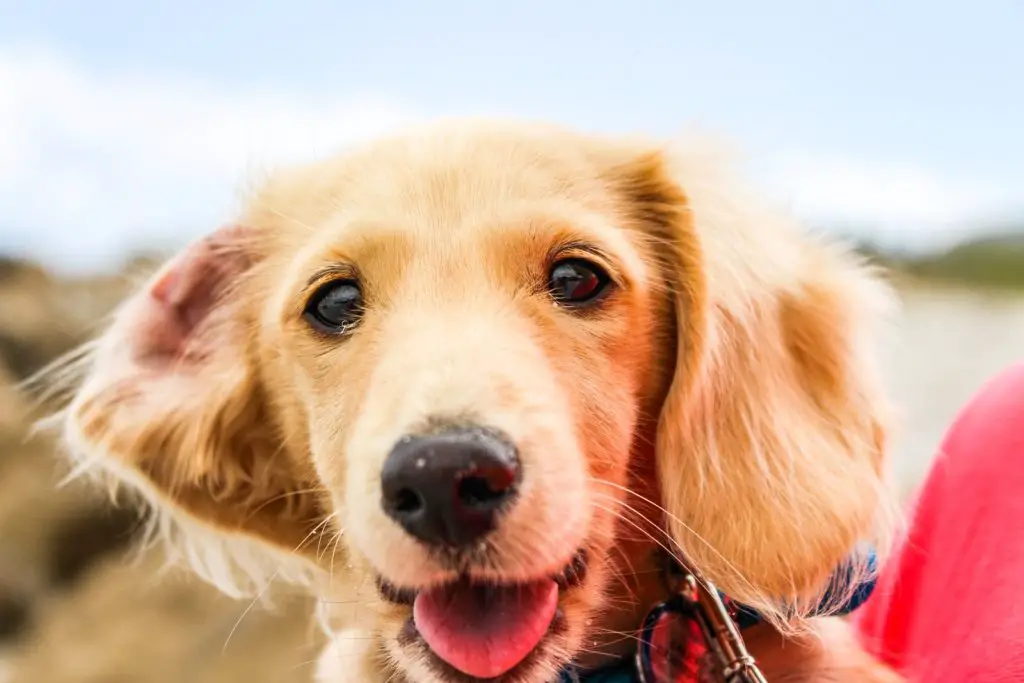
artificial sweeteners
Love is sweet, and so are the candies and treats associated with February 14th. Usually only chocolate comes to mind when considering dessert dangers, but artificial sweeteners can also bring harm to our pup, especially since many Valentine’s Day candies include artificial sweeteners such as xylitol.
Xylitol is found in a range of products, from mints to peanut butter. When ingested, xylitol causes an insulin spike in dogs(hypoglycemia) and, in larger quantities, liver damage (acute hepatic necrosis); symptoms associated with xylitol consumption include shaking, seizures, diarrhea, and death.
While xylitol can cause extreme health problems in dogs, it is important to stay calm if you discover your dog has eaten an artificially sweetened product. Other artificial sweeteners, such as aspartame and stevia, are not toxic to dogs. Be sure to check the product’s packaging; the danger is greatest when xylitol is listed in the first 3-5 ingredients.
Xylitol consumption warrants an immediate call and trip to the vet’s office.
Candles
Nothing sets the mood quite like candlelight, but the open flame and different scents radiating from your candles can be harmful to your dog. Candles should always be lit in a well-ventilated area and kept out of reach of animals, and a burning candle should never be left unattended.
In addition to the danger of an open flame, most candles contain paraffin, a petroleum-based wax, and synthetic fragrances. Such ingredients can cause respiratory infections and asthma in dogs. Candles with lead wicks also pose a significant threat to your dog’s overall health and well-being; lead wicks are associated with nervous system damage and hormone disruption.
Soyor vegetable-based candles with cotton wicks are the safest bet to ensure your Valentine’s Day is romantic for you and safe for your pet.
Valentine’s Day is a time to celebrate love and companionship, two things that dogs provide us with in abundance each and every day! Being aware of the potential dangers that could befall your best (canine)friend helps you extend the love their way on this special day, and a mindful and prepared approach to Valentine’s Day will leave you and your dog able to enjoy the holiday.

